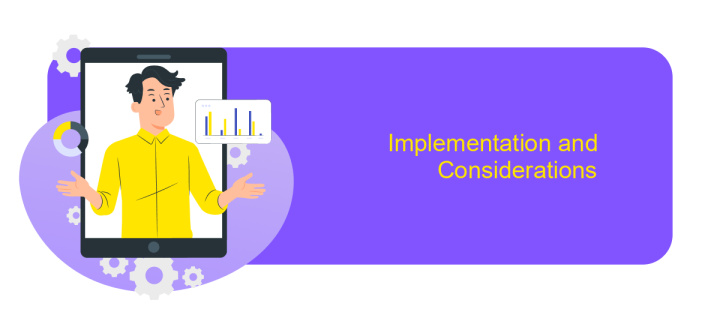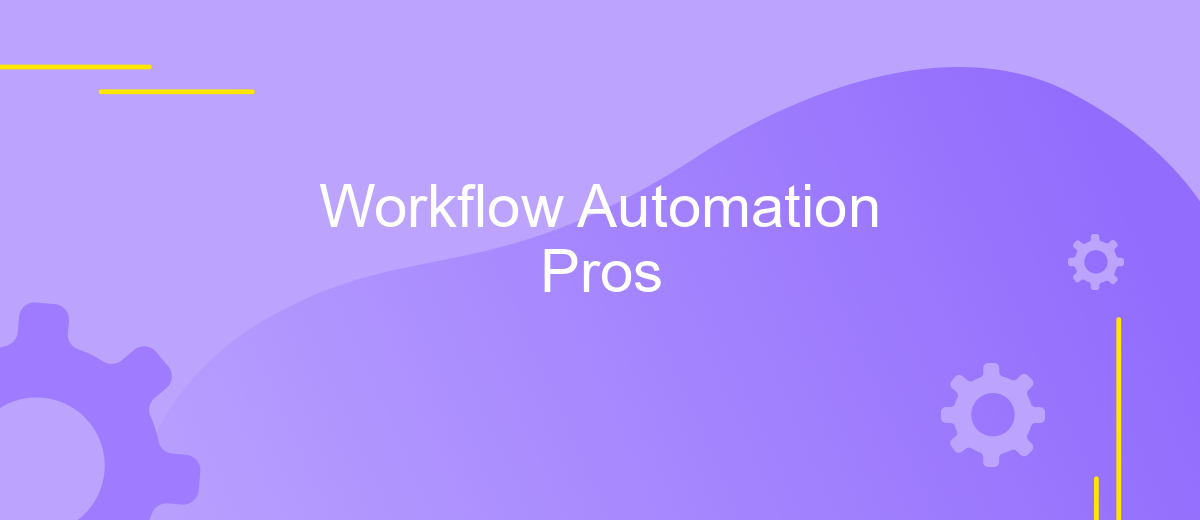Workflow Automation Pros
Workflow automation is revolutionizing the way businesses operate by streamlining processes, reducing human error, and boosting productivity. This technology enables organizations to automate repetitive tasks, allowing employees to focus on more strategic activities. In this article, we will explore the numerous benefits of workflow automation and how it can transform your business operations for greater efficiency and success.
Introduction
In today's fast-paced business environment, workflow automation has become a pivotal tool for enhancing efficiency and productivity. Automating repetitive tasks allows organizations to focus on more strategic activities, reducing human error and saving valuable time.
- Increased efficiency and productivity
- Reduction in human error
- Cost savings
- Improved compliance and audit trails
- Enhanced employee satisfaction
One of the key aspects of workflow automation is the seamless integration of various applications and services. Tools like ApiX-Drive facilitate this by providing a user-friendly platform to connect different systems without the need for complex coding. This not only simplifies the automation process but also ensures that all your business tools work in harmony, leading to a more streamlined and efficient workflow.
Benefits of Workflow Automation

Workflow automation offers numerous benefits, significantly enhancing productivity and efficiency within an organization. By automating repetitive tasks, employees can focus on more strategic activities that require human intelligence and creativity. This shift not only reduces human error but also accelerates processes, leading to faster project completion and improved overall performance. Additionally, workflow automation provides better visibility and control over processes, allowing for real-time monitoring and adjustments as needed.
Another major advantage is the seamless integration of various tools and systems, which can be effortlessly managed through services like ApiX-Drive. This platform simplifies the setup of integrations, enabling different applications to work together harmoniously without the need for extensive coding knowledge. By leveraging such services, businesses can streamline their operations, reduce manual workload, and ensure that data flows smoothly across all platforms. Ultimately, workflow automation fosters a more agile and responsive business environment, driving growth and innovation.
Types of Workflow Automation

Workflow automation can significantly streamline business processes and enhance efficiency. There are several types of workflow automation that organizations can implement to achieve these benefits.
- Task Automation: Automates repetitive tasks such as data entry, email responses, and scheduling.
- Process Automation: Involves automating complex business processes, from start to finish, like order processing or employee onboarding.
- Integration Automation: Connects different software and tools to work together seamlessly. Services like ApiX-Drive can help integrate various applications, ensuring smooth data flow and reducing manual intervention.
- Approval Automation: Streamlines approval workflows by automating the routing of documents and requests for approval, reducing bottlenecks.
By implementing these types of workflow automation, businesses can improve accuracy, save time, and focus on more strategic tasks. Tools like ApiX-Drive play a crucial role in facilitating integration automation, making it easier to connect different systems and automate workflows efficiently.
Implementation and Considerations

Implementing workflow automation requires careful planning and consideration to ensure a smooth transition and optimal performance. The first step involves identifying repetitive tasks that can be automated to save time and resources. Conducting a thorough analysis of current workflows will help pinpoint areas where automation can make the most impact.
Once potential areas for automation are identified, selecting the right tools and platforms is crucial. ApiX-Drive, for example, is a versatile service that facilitates seamless integration between various applications, making it easier to automate workflows without extensive coding knowledge. This can significantly reduce the implementation time and complexity.
- Identify repetitive tasks suitable for automation.
- Analyze current workflows to find automation opportunities.
- Select appropriate tools and platforms like ApiX-Drive.
- Test the automated workflows thoroughly before full deployment.
Consideration must also be given to potential challenges such as data security, employee training, and ongoing maintenance. Ensuring that staff are adequately trained and that there is a plan for regular updates and troubleshooting will help maintain the efficiency and effectiveness of the automated workflows.


Conclusion
In conclusion, workflow automation offers a myriad of benefits that can significantly enhance business efficiency and productivity. By automating repetitive tasks, companies can reduce human error, save time, and allocate resources more effectively. This not only streamlines processes but also allows employees to focus on more strategic and creative tasks, thereby fostering innovation and growth.
Moreover, integrating various tools and services is crucial for seamless workflow automation. Platforms like ApiX-Drive make it easier to connect different applications, ensuring smooth data transfer and synchronization. By leveraging such integration services, businesses can further optimize their operations and achieve a higher level of automation. Ultimately, embracing workflow automation is a strategic move that can lead to substantial long-term benefits, driving both operational excellence and competitive advantage.
FAQ
What is workflow automation?
How can workflow automation benefit my business?
What types of tasks can be automated in a workflow?
How do I get started with workflow automation?
Is it difficult to implement workflow automation?
Apix-Drive is a universal tool that will quickly streamline any workflow, freeing you from routine and possible financial losses. Try ApiX-Drive in action and see how useful it is for you personally. In the meantime, when you are setting up connections between systems, think about where you are investing your free time, because now you will have much more of it.

